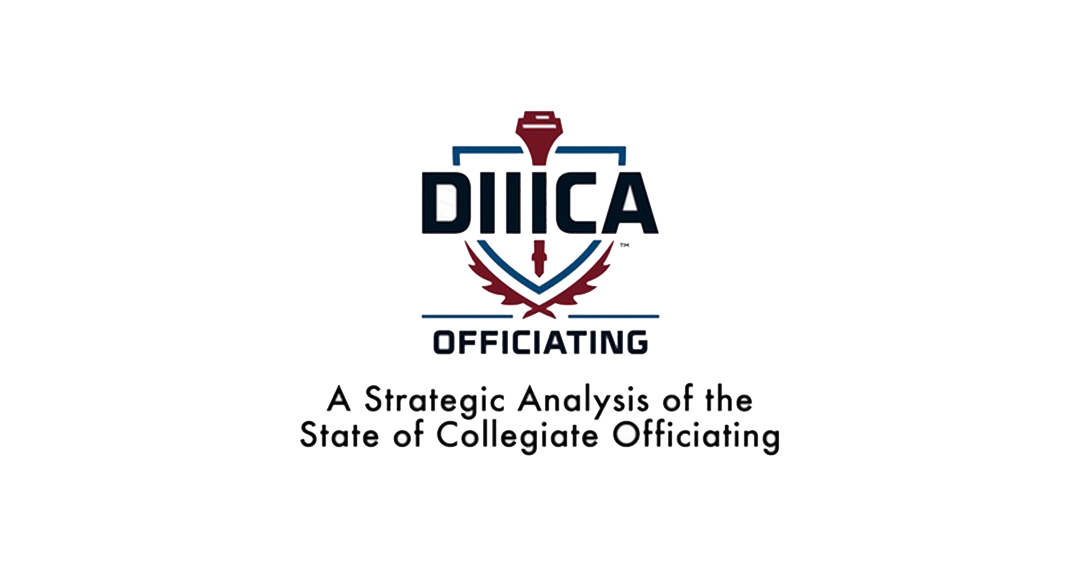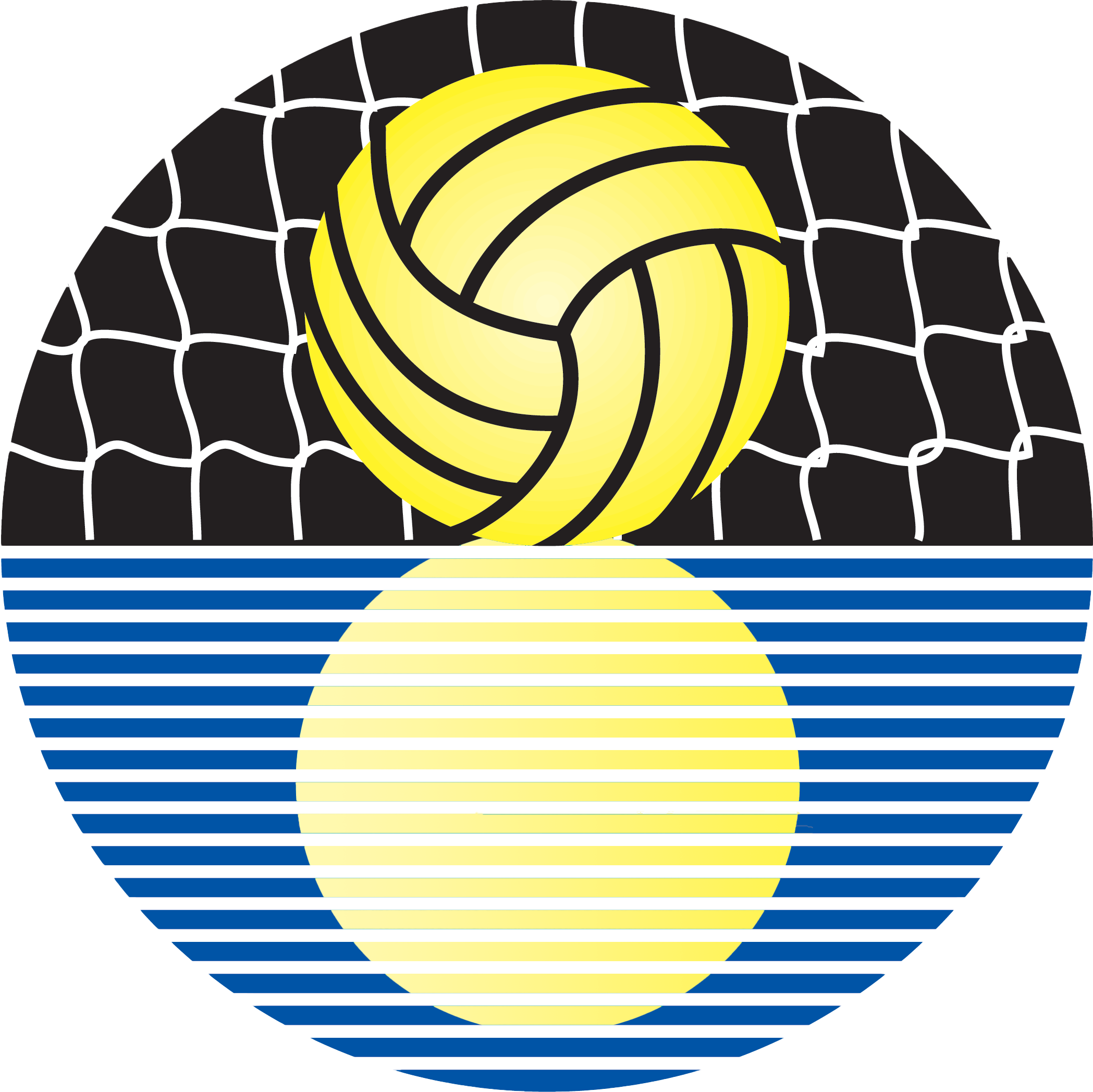Note: The Division III Commissioners Association report follows an independent study of officiating conducted by the Collegiate Water Polo Association (CWPA) addressing the same areas of concern. Contact the league office at office@collegiatewaterpolo.org for press and research inquiries regarding the information.
NEW YORK, N.Y. — With the importance of officiating at the forefront of securing quality competition and experiences for all involved, the Division III Commissioners Association (DIIICA) partnered with The PICTOR Group (TPG) to conduct a comprehensive assessment of officiating for 13 NCAA Division III sports and subsequently develop a strategic plan to address major concerns. Upon learning of this venture, National Collegiate Athletic Association (NCAA) representatives requested, and the DIIICA approved, an expansion of the review to include NCAA Divisions I and II and to add two sports for a total of 15. With that, “A Strategic Analysis of the State of Collegiate Officiating” was created.
“I commend the work conducted over the past 12 months by TPG alongside the DIIICA Officiating Committee,” shared Patrick B. Summers, Executive Director of the New England Women’s and Men’s Athletic Conference and chair of the DIIICA Officiating Committee. “The results of this report were championed by the DIIICA and was the precursor to the NCAA forming an Officiating Review Steering Committee that engaged the NCAA staff as well as commissioners from Divisions I, II and III in taking a closer look at the current state of officiating in college athletics.”
Over a 12-month period, more than 15,000 individuals provided input for the review. In each case, the outreach focused on recruiting (pipelines, shortages, diversity, age, training), retention (conduct, treatment, education, advancement), organizational challenges (fees/cost, review, regional differences, best practices) and strategic collaboration (with all level of amateur athletics).
The report also outlines three systemic and cultural recommendations to improve the current and future state of officiating. The first being organizational leadership and oversight of officiating, focused on formalizing accountability on a national level. Initiating programming to communicate the human side of officiating with a concentration on diversifying the pools of officials will be critical. The next recommendation endorses continued strategic alliances, collaboration and efforts across the NCAA divisions on best practices, education as well as partnering with coaches and officiating associations. Finally, the third emphasis is on Conference engagement through addressing innovative ways to provide meaningful evaluation and training modules. Additionally, examining the financial model around officiating and addressing sportsmanship-related issues will also be on each Conference’s radar.
“The joint venture between DIIICA and TPG group addresses the officiating crisis in Division III and has the potential to be a true game-changer for college athletics at our level,” expressed Joe Onderko, Presidents’ Athletic Conference Commissioner and DIIICA President. “This document is historic, as it marks the first time DIIICA has funded a comprehensive study of the many complex issues resulting in a shortage in officials in many sports in Division III. I am extremely grateful for the efforts of our working group, led by NEWMAC Executive Director and DIIICA Vice President, Patrick B. Summers, that has made this report a reality. We now look forward to taking next steps as recommended in the report to reverse the tide and implement strategies to mitigate Division III’s officiating challenges.”
“The PICTOR Group team was pleased to have been selected by the DIIICA for this project,” said Sandy Hatfield Clubb and Carolyn Schlie Femovich, The PICTOR Group and Project Co-Leaders. “Officiating is a fundamental aspect of quality competition and the DIIICA is to be commended for its commitment to commissioning a comprehensive analysis of collegiate officiating. TPG’s extensive data-driven analysis provide real insight into the current state of collegiate officiating and challenges to be addressed.”
Conference Commissioners have been consistently uneasy with the dwindling pool of quality officials, the advancing age of current officials, and the lack of interest or incentive among younger populations to enter or remain in the field. This growing worry led the DIIICA to take the initiative and address these alarming trends in order to potentially head-off a serious threat to collegiate athletic competitions.
Within the DIIICA report, it was understood that Division III commonly serves as the entry position for most NCAA officials. The data highlighted the need for increased educational opportunities as well as positive treatment toward officials as major factors to increase retention and advancement opportunities. Promoting a culture where coaches, student-athletes, fans and others view officials as a fundamental part of competition, performing an important role to facilitate fair and safe athletics events, would benefit all.
“Finding ways to make experiences better for our student-athletes are always at the forefront of everyone’s mind,” says Katie Boldvich, Landmark Conference Commissioner. “Sometimes it’s easy to get caught up in signage, trophies or t-shirts – but having qualified, top-level individuals, effectively officiating the games they love to play is really the best championship enhancement we can provide.”
This comprehensive review of the current state of collegiate officiating, along with the recommendations it produced, now serves as the launch point for a five-year strategic plan that the DIIICA intends on implementing immediately.
“The initial year of the project yielded crucial data regarding how we can improve our efforts with officiating,” informed Dan McKane, Minnesota Intercollegiate Athletic Conference Commissioner. “The next stage, within the strategic plan, is to help identify opportunities to improve our recruiting, training, and support for collegiate officials. Consistent engagements within Conference Offices in addition to formulating strategic alliances among all NCAA divisions, with national coaching groups, high school organizations and more will be key endeavors.”
“I encourage the NCAA and Commissioners at the Division I and II levels to continue to collaborate with Division III on this issue that we must solve together,” continued Summers. “The data provides us with clear direction on critical issues and the DIIICA’s work on a five-year strategic plan to respond and take action has already begun.”
“The work of the DIIICA in regard to addressing the existing officiating crisis in Division III is commendable and greatly appreciated,” stated Louise McCleary, NCAA Managing Director of Division III. “Hiring TPG to examine this issue, collaborating with the NCAA, and sharing the results, of which detail recommendations and a strategic plan, will pay dividends for the Division III membership. I thank our Commissioners for their hard work and commitment to addressing this issue.”
FULL REPORT | REPORT SYNOPSIS
THE PICTOR GROUP TEAM
The PICTOR Group team charged with this review featured Co-Project Leads Sandy Hatfield Clubb and Carolyn Schlie Femovich, Officiating Consultant Mary Struckhoff and Project Manager Dee Abrahamson, all of whom have multiple years of experience in intercollegiate athletics administration and NCAA governance processes. In addition, the Global Sport Institute at Arizona State University was engaged to guide the data collection and analysis aspects of the review. Their research team was led by Director of Research Dr. Scott Brooks and included Dr. Karen Gallagher and Dr. Luke Brenneman. The PICTOR Group also worked closely with the DIIICA Officiating Committee, chaired by Patrick B. Summers, Executive Director of the NEWMAC, to oversee the projected timeline and completion of the deliverables.
Division III Commissioners Association Officiating Committee Members: 
Ken Andrews, Executive Director, Middle Atlantic Conference
Katie Boldvich, Commissioner, Landmark Conference
Jennifer Dubow, Executive Director. Southern California Intercollegiate Athletic Conference
Kelly Higgins, Commissioner, American Collegiate Athletic Association
Jessica Huntley, Commissioner, Atlantic East Conference
Jeff Ligney, Commissioner, Capital Athletic Conference
Keri Alexander Luchowski, Executive Director, North Coast Athletic Conference
Dan McKane, Commissioner, Minnesota Intercollegiate Athletics Conference
Adrienne Mullikin, Commissioner, Colonial States Athletic Conference
Patrick B. Summers, Committee Chair & Executive Director, New England Women’s and Men’s Athletic Conference
Kim Wenger, Commissioner, Northwest Conference
Chuck Yrigoyen, Commissioner, American Rivers Conference
Release courtesy Division III Commissioners Association




